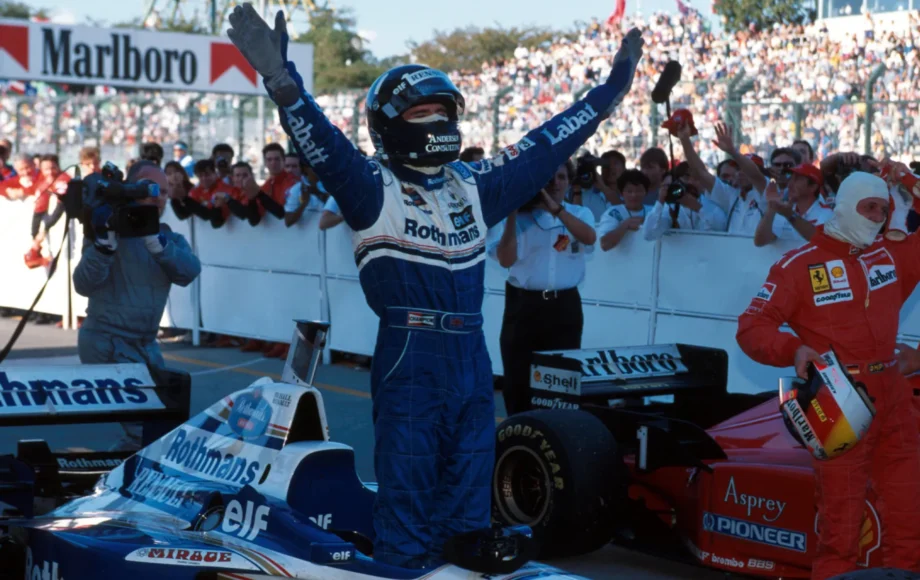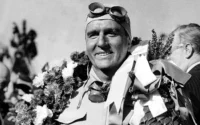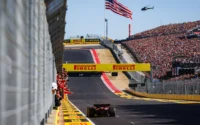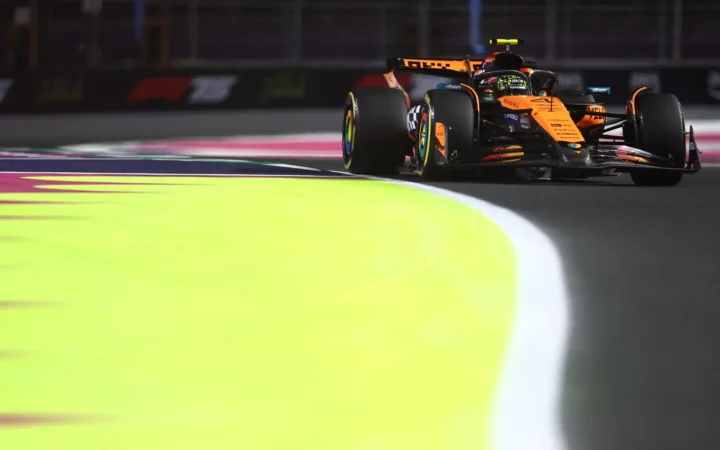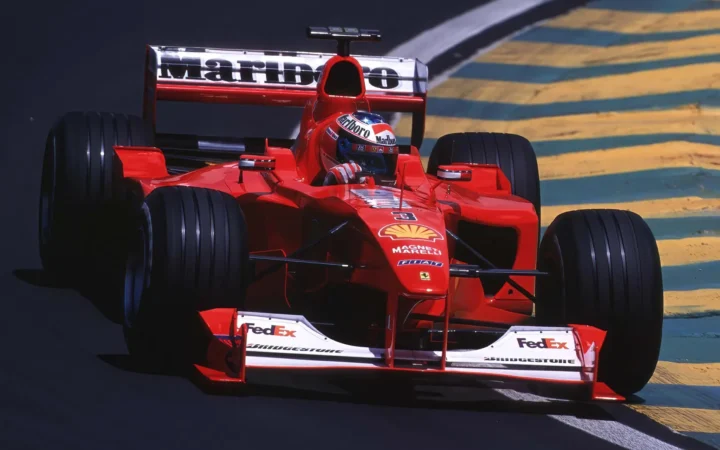Formula 1 has seen its fair share of thrilling and historic races, but few can match the drama and intensity of the 1996 Japanese Grand Prix.
The Suzuka Circuit is renowned for its challenging figure-of-eight layout, with high-speed straights and tight corners. This circuit has had a reputation over the years for delivering nail-biting and end-of-season races, and the 1996 Japanese Grand Prix was no exception. Officially titled the XXII Fuji Television Japanese Grand Prix, this race marked the conclusion of the 1996 season.
1996 Drivers’ Championship on the line
As the Formula 1 circus headed into the final race of the season, Damon Hill, driving for Williams-Renault, held a commanding lead in the Drivers’ Championship, leaving only Jacques Villeneuve, his teammate, any mathematical chance of clinching the championship. Villeneuve’s hopes of clinching the title hinged on winning the race while Hill would have had to score no points, but an unforeseen twist to Villeneuve’s race sealed Hill’s championship victory.
The 1996 Japanese Grand Prix held special significance as it marked the first time since 1977 that Japan had the honour of hosting the final round of the World Championship. In qualifying, Jacques Villeneuve seized pole, leading Damon Hill by a considerable half-second. Michael Schumacher in the Ferrari claimed third on the grid, trailing Villeneuve by an additional 0.7 seconds.
The 52-lap race would be etched in British fans’ memories, with Damon Hill clinching a resounding victory and securing his grip on the 1996 Drivers’ Championship title. The race took an unexpected turn when Jacques Villeneuve, the pole-sitter and Hill’s teammate, suffered a poor start and subsequently retired due to a wheel issue, marking the end of his own championship chances.
Ferrari’s Michael Schumacher took second place, allowing the Italian outfit to leapfrog Benetton in the 1996 Constructors’ Championship and secure the coveted second place. Mika Hakkinen, driving for McLaren-Mercedes, rounded out the top three in a fiercely competitive race.
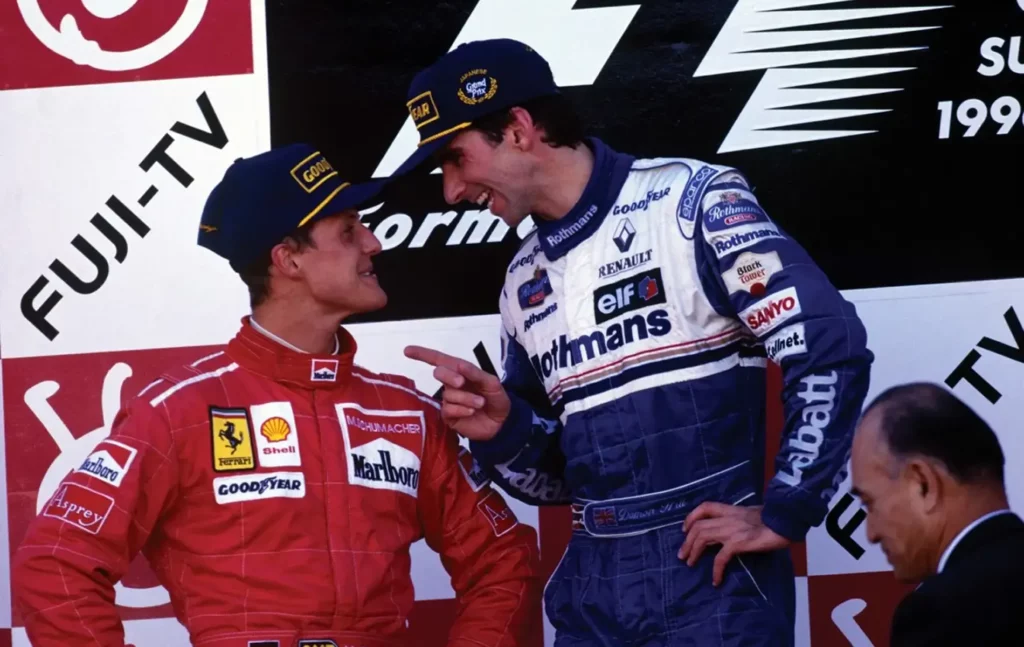
Damon Hill’s championship victory held a special place in F1 history as he became the first son of a World Champion to secure the championship himself. His father, Graham Hill, had won the title in 1962 and 1968.
The 1996 Japanese Grand Prix was also notable for being the final race for British driver Martin Brundle. Brundle, who had been an enduring presence in Formula 1 since 1984, had reached the podium nine times during his career. It also marked the last race for Pedro Lamy, Giovanni Lavaggi, and the Ligier F1 Team.
What happened in the 1996 Japanese Grand Prix?
Opening laps
Tensions were high leading up to the start, with a championship on the line. The initial start had to be aborted due to David Coulthard stalling his McLaren, adding to the tension on the starting grid. When the second start finally got underway, Jacques Villeneuve, the pole-sitter, suffered a slow getaway and found himself plummeting to sixth place. The top positions were now occupied by Damon Hill, Gerhard Berger, Mika Hakkinen, Michael Schumacher, and Eddie Irvine.
Meanwhile, Jean Alesi, who had qualified ninth, was on a mission to recover lost ground but spun off at the second corner, destroying his Benetton. Thankfully, Alesi emerged unharmed from the incident.
On the third lap, Gerhard Berger made an ambitious move to overtake Hill at the final chicane, but the attempt damaged his front wing, allowing Hill to gradually increase his lead.
Pit stops
As the race unfolded, Hill continued extending his lead while Schumacher successfully moved on Häkkinen during the initial round of pit stops, securing second.
Hill made his second pit stop with a 25-second gap separating him from Schumacher. Emerging from the pits just ahead of the Ferrari, Hill managed to pull away again, this time leading by 13 seconds with only ten laps remaining.
Meanwhile, Villeneuve’s fortunes took a turn for the worse. After passing Irvine and setting the fastest lap of the race, his right rear wheel came off on lap 37 due to a wheel-bearing failure—a situation eerily reminiscent of what had happened to his teammate, Damon Hill, during the British Grand Prix. Villeneuve’s misfortune not only took him out of the race but also handed the Drivers’ Championship to Hill, whom Williams had already dropped for the following season.
Final laps
The battle for fourth place witnessed more excitement when Gerhard Berger had another collision, this time with Eddie Irvine’s Ferrari at the final chicane. Irvine spun out and retired, while Berger managed to continue unscathed. In the race’s final laps, Schumacher staged a late fightback, closing the gap to Hill. However, Hill held on, winning the race by a slim margin of 1.8 seconds. Häkkinen came in a further 1.4 seconds behind, while Berger made an impressive recovery to finish 4th.
The race also marked the last Grand Prix for Martin Brundle, who came home in 5th, and Heinz-Harald Frentzen secured the final point in 6th place.
In the UK, this race held a special place in the hearts of F1 fans, as it was the last race broadcast live by the BBC. As Damon Hill crossed the finish line to clinch the race and the championship, commentator Murray Walker couldn’t contain his emotions, declaring, “And I’ve got to stop, because I’ve got a lump in my throat.” This heartfelt moment summed up the season’s drama and Hill’s battle to the top of the championship.
Damon Hill’s F1 Drivers’ Championship
Damon Hill’s championship victory in 1996 marked his own personal triumph but also secured his place in the hearts of the British fans and F1 history.
In 1996, the Williams-Renault reigned supreme as the fastest car on the grid. Behind the wheel, Damon Hill clinched a championship, winning eight races and securing nine pole positions while beating his talented teammate, Jacques Villeneuve, the reigning Indycar champion. This made Hill the first son of a Formula 1 champion to claim the championship himself. This season proved to be the pinnacle of his career.
Damon Hill’s performance in 1996 was so remarkable that he equalled the record for starting all 16 races of the season from the front row, a feat previously achieved only by racing legends Ayrton Senna in 1989 and Alain Prost in 1993.
Not every race went to plan, though. At the 1996 Monaco Grand Prix, a race his father dominated in the 1960s, Hill led the pack until his engine failed, ending his hopes for a win. This twist of fate allowed Olivier Panis to seize his only F1 win.
Despite his championship victory and dominant performances throughout the season, Hill received surprising news before the season ended. Williams had decided to part ways with him in favour of Heinz-Harald Frentzen for the 1997 season. This marked the end of Hill’s successful stint with Williams, leaving him as the team’s second-most successful driver in terms of race victories, second only to Nigel Mansell.
Hill’s 1996 World Championship earned him the prestigious BBC Sports Personality of the Year Award for the second time in his career, a distinction held by only a select few, including boxing legend Henry Cooper, Nigel Mansell, tennis icon Andy Murray, and Formula 1 great, Lewis Hamilton.
1996 Japanese Grand Prix Race Results
| Pos | Driver | Points |
|---|---|---|
| 1 | Damon Hill | 10 |
| 2 | Michael Schumacher | 6 |
| 3 | Mika Hakkinen | 4 |
| 4 | Gerhard Berger | 3 |
| 5 | Martin Brundle | 2 |
| 6 | Heinz-Harald Frentzen | 1 |
| 7 | Olivier Panis | |
| 8 | David Coulthard | |
| 9 | Rubens Barrichello | |
| 10 | Johnny Herbert | |
| 11 | Jos Verstappen | |
| 12 | Pedro Lamy | |
| 13 | Ricardo Rosset | |
| Ret | Eddie Irvine | |
| Ret | Ukyo Katayama | |
| Ret | Jacques Villeneuve | |
| Ret | Mika Salo | |
| Ret | Pedro Diniz | |
| Ret | Jean Alesi | |
| DNQ | Giovanni Lavaggi |
1996 F1 Championship Standings
1996 F1 Drivers’ Championship Standings
| Pos | Driver | Points |
|---|---|---|
| 1 | Damon Hill | 97 |
| 2 | Jacques Villeneuve | 78 |
| 3 | Michael Schumacher | 59 |
| 4 | Jean Alesi | 47 |
| 5 | Mika Hakkinen | 31 |
1996 F1 Constructors’ Championship Standings
| Pos | Constructor | Points |
|---|---|---|
| 1 | Williams-Renault | 175 |
| 2 | Ferrari | 70 |
| 3 | Benetton-Renault | 68 |
| 4 | McLaren-Mercedes | 49 |
| 5 | Jordan-Peugeot | 22 |
Seen in:

